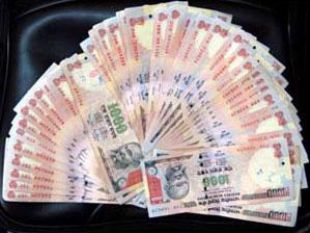
New Delhi, September 30: India is considering a proposal to expand its Customs Overseas Intelligence Network across Asia for checking cross-border illegal trade and blackmoney besides gathering information on commercial frauds.
A proposal in this regard is under consideration of the Ministry of External Affairs, sources said.
The network, which functions under the Directorate of Revenue Intelligence under the Finance Ministry, plays a pivotal role in exchange of information related to cross-border illegal trade.
At present, there are nine Customs Overseas Intelligence Network (COIN) offices in various cities including London and Brussels. The Finance Ministry has recently approved two COIN offices in China, the proposal which has been agreed upon by the MEA.
"Two COIN offices are yet to be established in China. There has been an in-principle approval on it by the Finance Ministry and the MEA. The MEA is also looking into the possibility of opening few more such offices in Asian nations. However, no final decision has been taken so far," a source said.
He said the main area of focus would be South East region which includes Malaysia, Philippines, Cambodia, Singapore, Indonesia and Thailand among others.
The need for expanding the network was felt after authorities found that a majority of illegal goods were originating from these countries and being smuggled to India using different gateways, sources said.
Customs officials have noticed spurt in activity related to Trade Based Money Laundering (TBML) through illegal export to India from South East nations.
"The government is in talks with all the stake holders. An appropriate decision will be taken soon," an official, in the know of the status on the proposal, said.
The sources said the MEA is also considering a proposal to set up 14 new Income Tax Overseas Units (ITOUs) to deal with the menace of blackmoney and keep a tab on illegal routing of funds from abroad and parking of money in foreign countries.
A similar proposal to position liaison officers in some of the countries by CBI is also under consideration of the MEA.
India has already established 10 ITOUs in its missions at Cyprus, France, Germany, the Netherlands, Japan, the UAE, the UK, the US, Mauritius and Singapore.
The ITOUs are manned by tax officers who are designated as first secretaries to maintain effective coordination and liaison between Indian tax authorities and the tax authorities of countries concerned.
These units are mandated to obtain information on tax and financial data of investments made by individuals and institutions in these countries and facilitate exchange of data on legal investment or routing of money in the country and vice-versa.
The CBI has decided to open its offices in the UK, the US and the UAE to liaise with their law enforcement agencies which would help in execution of its judicial requests on real time basis.
Sources said the MEA is looking into all the proposals by the Customs and the I-T departments and the CBI.
A recent Finance Ministry report on blackmoney has recommended to expand and strengthened the scope and reach of COIN offices to check suspicious trade transactions.
"DRI maintains constant interaction with its Customs Overseas Intelligence Network offices to share intelligence and information through diplomatic channels on the suspected import/export transactions to establish cases of mis-declaration, which are intricately linked with tax evasion and money laundering.
"The scope and reach of COIN offices should be further expanded and strengthened. Customs officers should be stationed in major trading partner countries to liaise with customs authorities of those countries and cause verifications of suspicious trade transactions," the report has said.





Comments
Add new comment